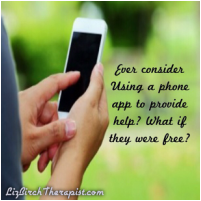 What is your inner child telling you? Do you want everyone to cater to your needs? Do you find yourself disappointed a lot? Do you have a lot of fear... anxiety? The idea of having an inner child may be foreign to most people. But all of us have a part of us that's still us as a child. It's possible that our inner child never fully grew up or may not be fully healed from pain in the past. Think about your current life and all the emotions and behaviors that you don't like and are continually trying to change. These emotions and behaviors come from our experiences from when we were small children. From birth to about 6 or 7 years old, our brain functions at a relatively slow pace, which is a very "receptive" brainwave state. At this time we are profoundly affected by our life experiences. Our beliefs about ourselves and others are formed during this time based on our life's experiences. As small children we will have been absorbing a great deal from our extended families, our caregiver(s), friends, religious institutions, etc. Our experiences may have been filled with love and support or they may have been filled with neglect and abuse. Our subconscious takes in all this information and holds on to it for the rest of our lives. We cannot change the script. The life we experienced happened, whether good or bad, it happened. And that script, how our brain processes our events, is designed to keep us safe. Hence, anxiety to keep us on the lookout for danger (as an example). All of our life experiences have been "logged" into our sub-conscious minds and bodies. This all creates the pool in which we float, or sink. Inevitably, the water will be a bit dirty - or it may even be like thick mud. In this pool is our self-esteem, body-image, family trauma, shame and secrets (even if not spoken about). We sink down into this pool, or mud, whenever we are overwhelmed by our negative thoughts, emotions, self-doubt or self-loathing. In therapy the aim is to sensitively lift out this dirt/mud, bit by bit, until we are left with just a stain of what was once there. In therapy you can learn how to meet, rescue and “adopt” this wounded child who still lives deep inside you. This process of meeting, rescuing and adopting your wounded child is an amazing process. Any why you? Because you are the only person who you can guarantee never to leave you! Signs that your Inner Child may be wounded: low self-esteem, poor body-image, mood and emotional imbalances, problems with boundaries being too rigid or too weak, problems with eating, harming yourself, being a rebel/ a hoarder/ a bully/ a perennial victim or a super-achiever, intimacy problems, commitment problems, a general lack of trust in yourself and others, criminal behavior, excessive lying, just to name a few. If you are in Orange County, California and interested in working on your Inner Child please feel free to reach out to me. We can begin with a free 15-minute consultation and go from there. Or you can reach out to any therapist in your area and ask if they do Inner Child work. I wish you all the best! I am a licensed Marriage & Family Therapist who can provide services with anyone who resides in the State of California. I have also been trained in Clinical Hypnotherapy which is beneficial for more specific goals.
Liz Birch, LMFT, CHt ~ 714-584-6047 ~ [email protected]
0 Comments
 Let me begin by saying Hypnotherapy is not a type of therapy in itself. However, it is a great aid to Cognitive Behavioral Therapy. Cognitive Behavioral Hypnotherapy, which combines hypnosis with cognitive-behavioral therapy, helps change unwanted patterns and behaviors by connecting with the subconscious mind. It helps with psychotherapy because the hypnotic state allows a person to explore more painful thoughts and feelings that may be hidden from the conscious mind. The positive suggestions that people are given while hypnotized are referred to as “post hypnotic suggestions” because they are intended to take effect after the person emerges from the deep relaxation or trance and is no longer under hypnosis. Experts say that hypnotherapy can help the "stuck" thought patterns that go along with depression, anxiety, OCD, and other mood disorders. The fact is, however, that hypnosis is a genuine psychological phenomenon that has valid uses in clinical practice. Simply put, hypnosis is a state of highly focused attention or concentration, often associated with relaxation, and heightened suggestibility. While under hypnosis, it seems many people are much more open to helpful suggestions than they usually are. "Hypnosis works and the empirical support is unequivocal in that regard. It really does help people," says Michael Yapko, PhD, a psychologist and fellow of the American Society of Clinical Hypnosis. Hypnosis has been used for centuries for pain control, including during the Civil War when Army surgeons hypnotized injured soldiers before amputations. Recent studies have confirmed its effectiveness as a tool to reduce pain. Among the leading researchers in the field is Guy H. Montgomery, PhD, a psychologist who has conducted extensive research on hypnosis and pain management at Mount Sinai School of Medicine, where he is director of the Integrative Behavioral Medicine Program. In a 2009 article in Health Psychology (Vol. 28, No. 3), Montgomery and colleagues reported on a study, which found that a combination of hypnosis and cognitive-behavioral therapy could reduce fatigue for breast cancer patients undergoing radiation therapy. Hypnotherapy is a safe procedure when done by a trained therapist. Hypnotherapy is not mind control or brainwashing. Hypnotherapy is specifically designed to fit your needs. This means that each hypnotherapy session is designed for just you and allows for a very individualized approach. The reason that hypnotherapy can be so effective is because it is so person centered. If you have tried other treatments and not seen results, you should give hypnotherapy a try due to the fact that it is so person centered. Check with your insurance company to see if they specifically cover hypnotherapy.
 Over the past few years I’ve become accustomed to utilizing phone apps to help my clients get through some tough times. It’s not a replacement for me, their therapist, but they do help when my clients needs some "on the spot" aid. I thought I’d list a few that I use and ones that my clients have shared with me that they find helpful. If any of you have other apps that aid in calming, supporting, encouraging or do some crisis management until personal help is available I’d like to hear about them. Here are my top five that I’m able to access via my iphone.
Again none of the above mentioned apps are a replacement for in-person help but many of my clients have shared that they have been extremely helpful to them. Please list your favorite self help apps (and maybe some pros and cons) in the comment section below. It's great to learn what works, and doesn't, from others. I am a licensed Marriage & Family Therapist who can provide services with anyone who resides in the State of California. I have also been trained in Clinical Hypnotherapy which is beneficial for more specific goals. Liz Birch, LMFT, CHt ~ 714-584-6047 ~ [email protected] *photo courtesy of freedigitalphotos.net |
|

 RSS Feed
RSS Feed